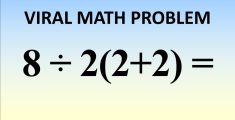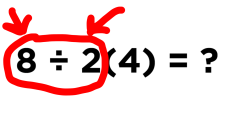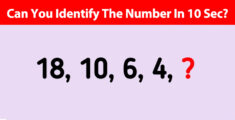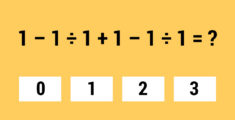Puzzles have long intrigued intellectuals, and it’s easy to see why. They come in various forms, from simple to mind-bogglingly complex. Some puzzles remain unsolved, adding to the endless fascination for those who relish a good challenge.
But puzzles aren’t just for enthusiasts; they offer incredible benefits for everyone. Solving puzzles acts as a mental workout, keeping your mind sharp and agile. They train your brain to approach problems from various angles and foster creative thinking to find solutions.
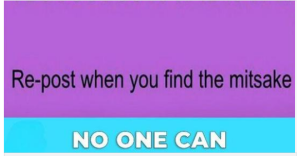
The Puzzle That Puzzled the Internet
One puzzle has gone viral on the internet, leaving many people scratching their heads. At first glance, it appears to be a standard image of numbers from 1 to 15 arranged neatly. The challenge? To spot the error and share the image. Sounds simple, right?
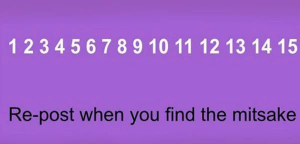
As you search for the error, you notice something odd. The numbers appear perfect, with none missing or incorrect. You scrutinize them for hidden patterns or sequencing but find nothing out of place. They are arranged flawlessly.
You start thinking outside the box. Could the error be the absence of zero? Or perhaps the inclusion of sixteen? Or is it something else entirely? You analyze every detail, from spacing to the shape of the numbers, but the answer remains elusive.
Then it hits you. The mistake isn’t in the numbers at all. It’s in the sentence below, which asks you to find the “mitsake” instead of the error. Clever, isn’t it? Most people are so focused on the numbers that they completely overlook the misspelled word.
The Takeaway from the Puzzle
This puzzle teaches us a valuable lesson: sometimes we need to step back and view the bigger picture to find the solution. We can get so absorbed in the details that we overlook the obvious. By training our minds to look beyond the surface, we become more effective problem solvers.
The Wide-Ranging Benefits
The benefits of solving puzzles are extensive. Research has shown that they enhance memory, particularly short-term memory. Puzzles engage our minds, boosting mental processes and strengthening neural connections.
Additionally, puzzles develop analytical skills by requiring logical and critical thinking as well as creativity. Much like the puzzle we encountered earlier, they encourage us to view the entire picture and think outside the box. These skills are valuable in everyday life, aiding in the resolution of complex problems.
In fact, analytical thinking is highly prized in the workforce, distinguishing individuals in roles such as leadership and management. By regularly engaging with puzzles, you can cultivate these sought-after skills.
So, the next time you tackle a puzzle—be it a crossword, Sudoku, or a challenging riddle—embrace the challenge. You’ll be exercising your mind and enjoying numerous benefits. Happy puzzling!

